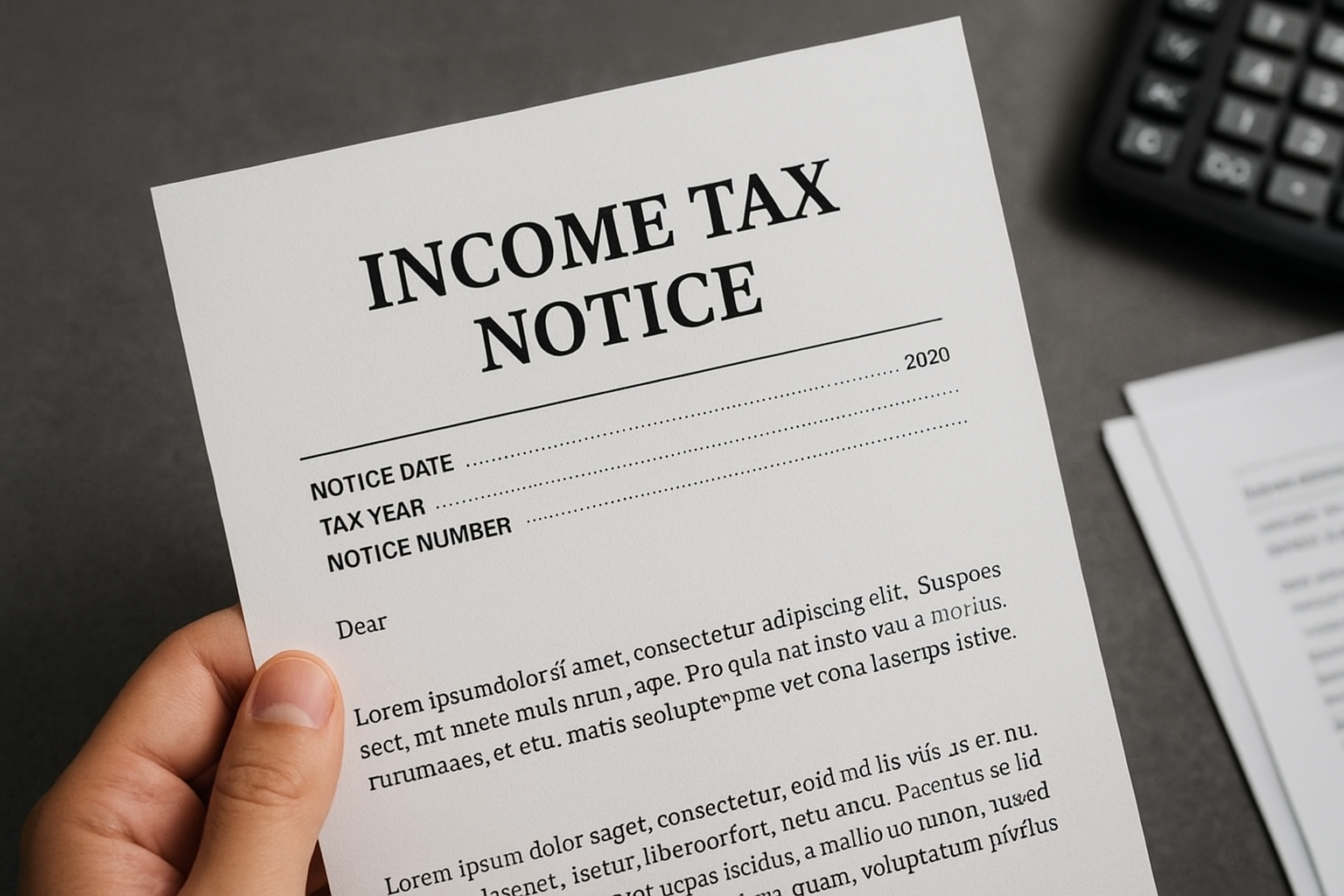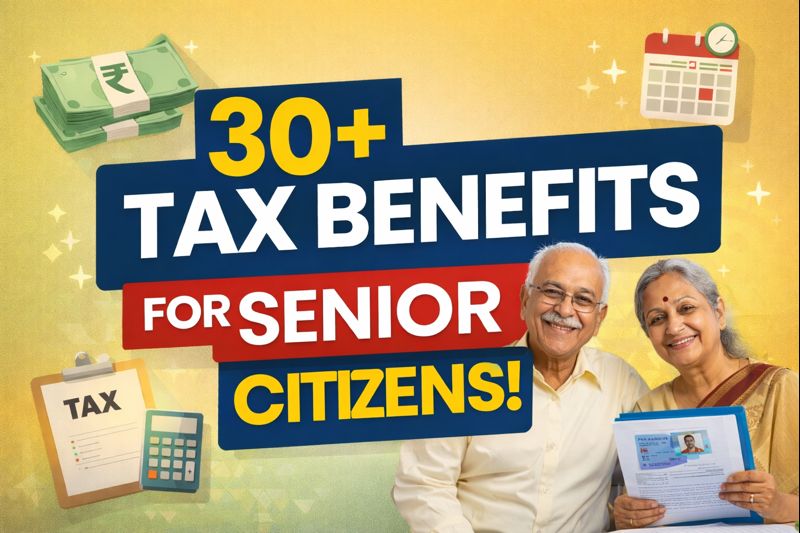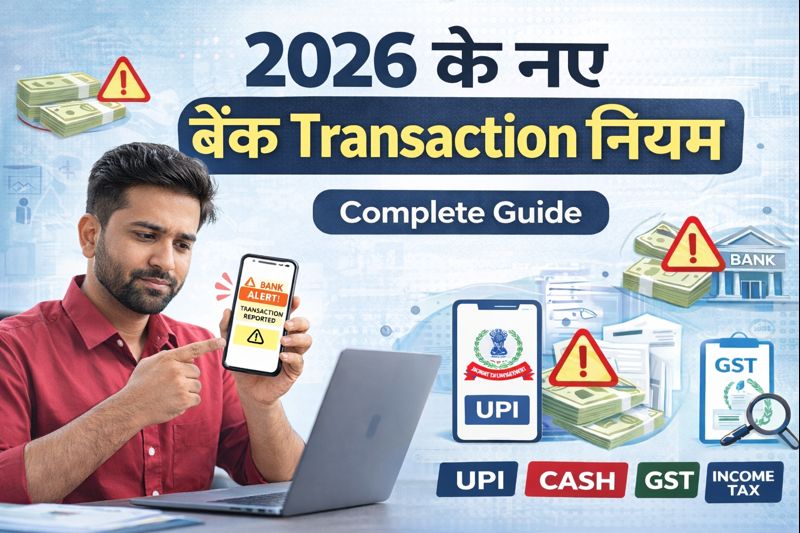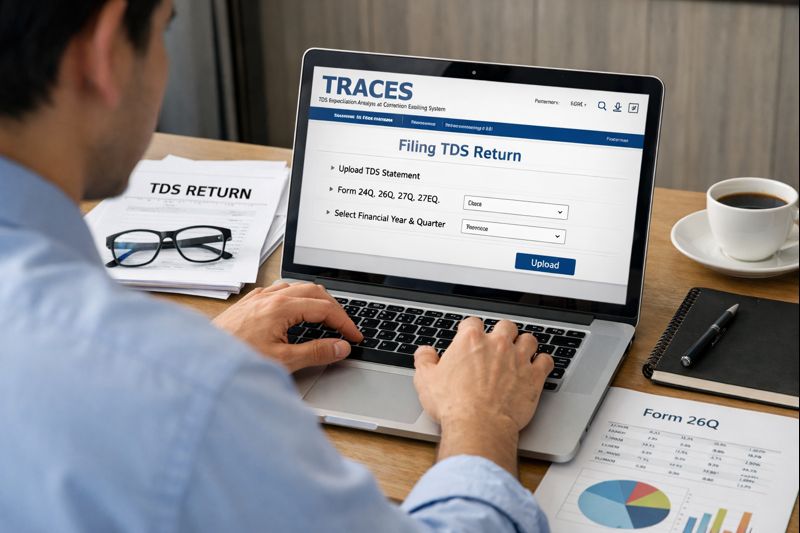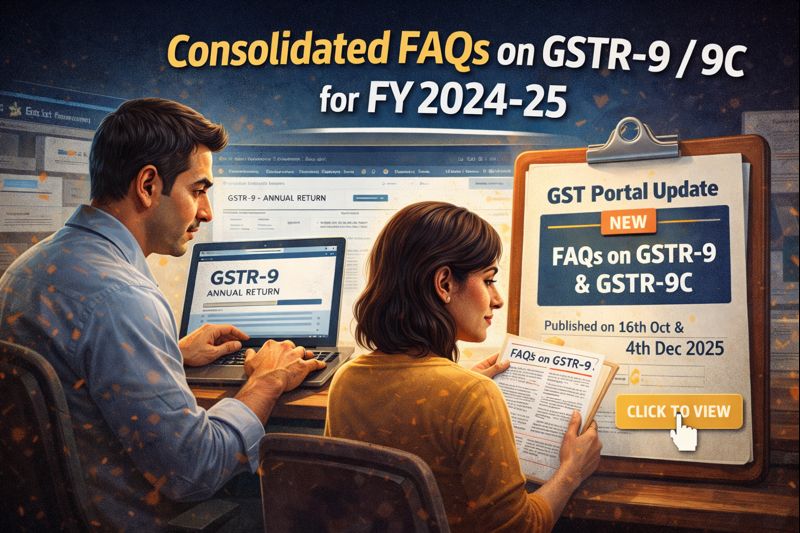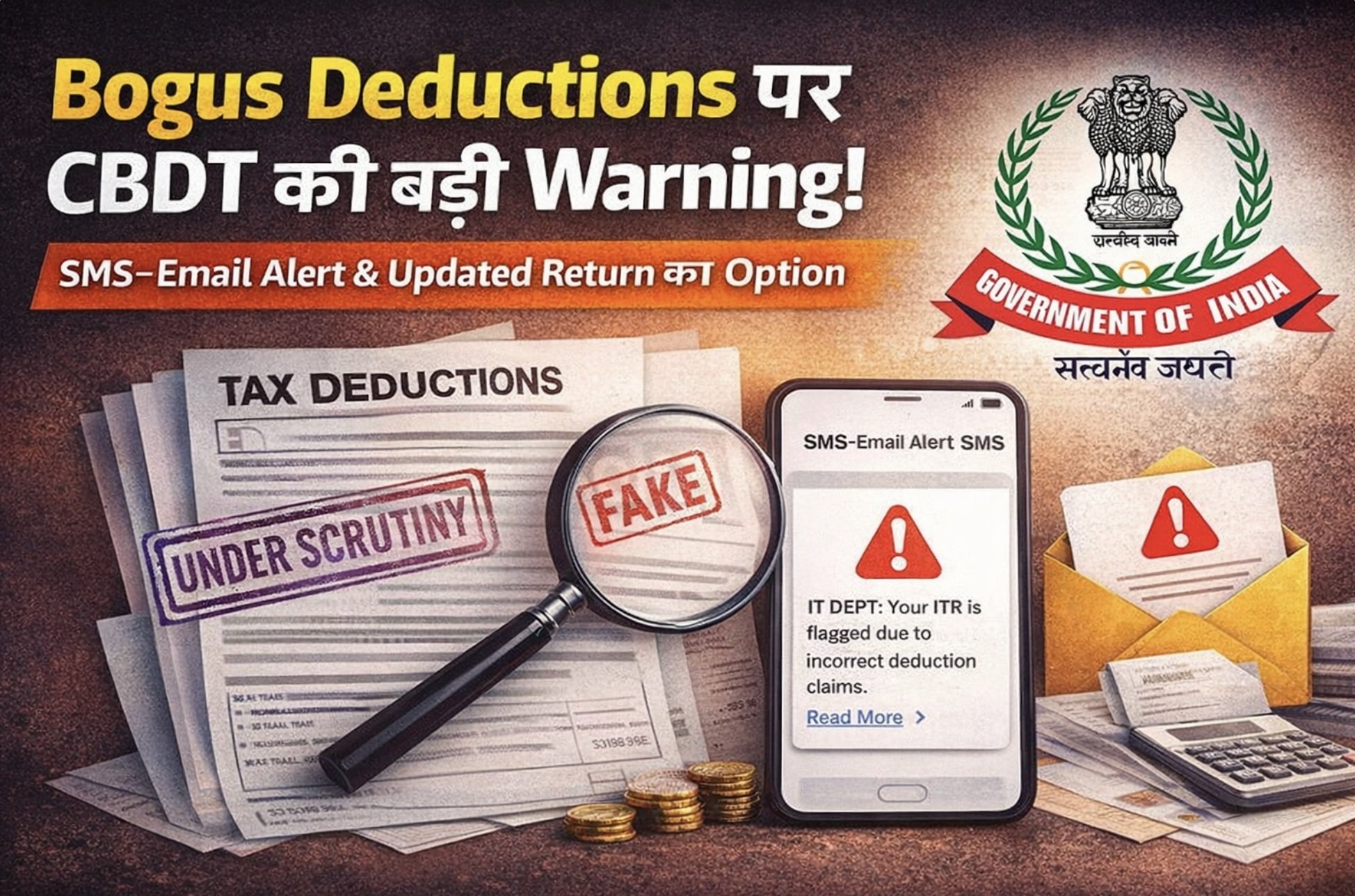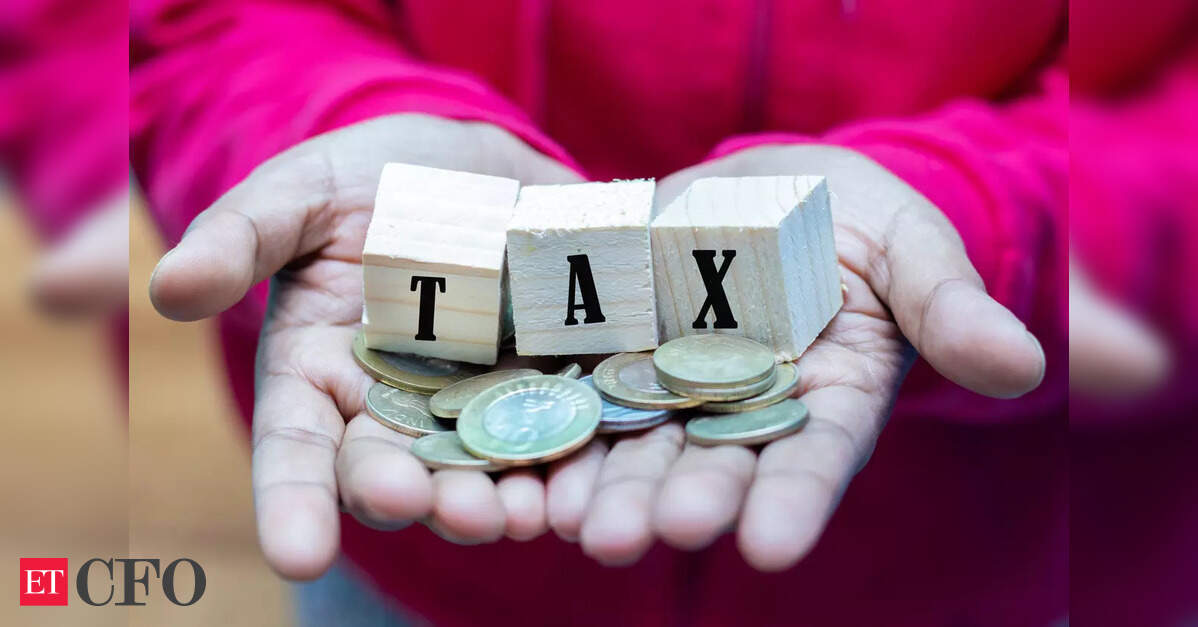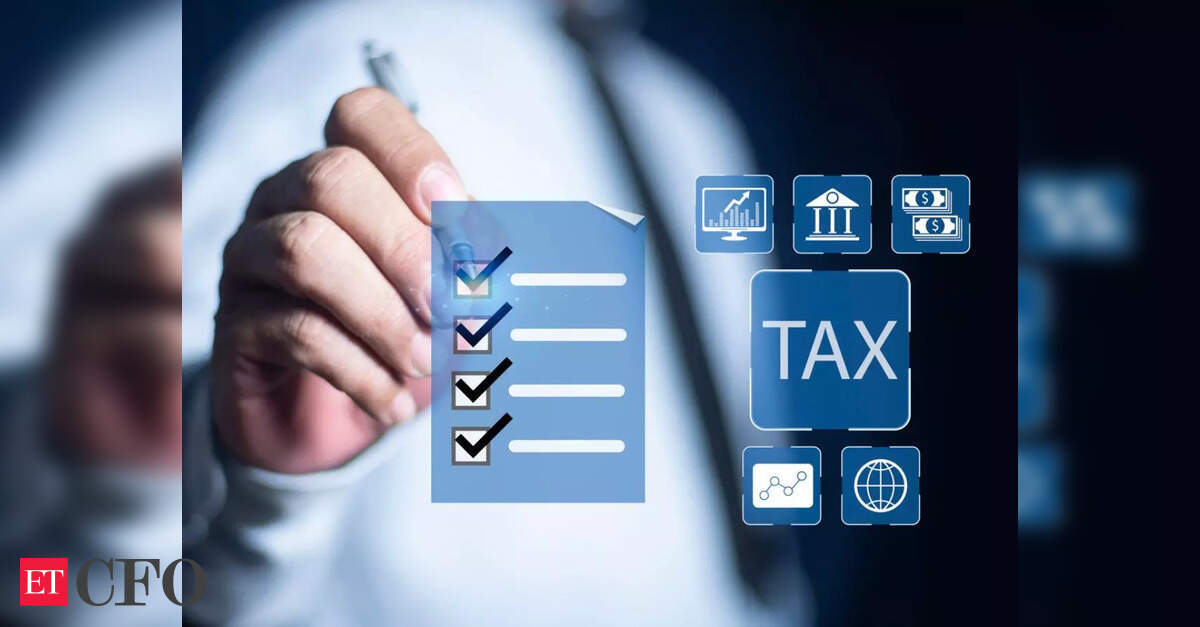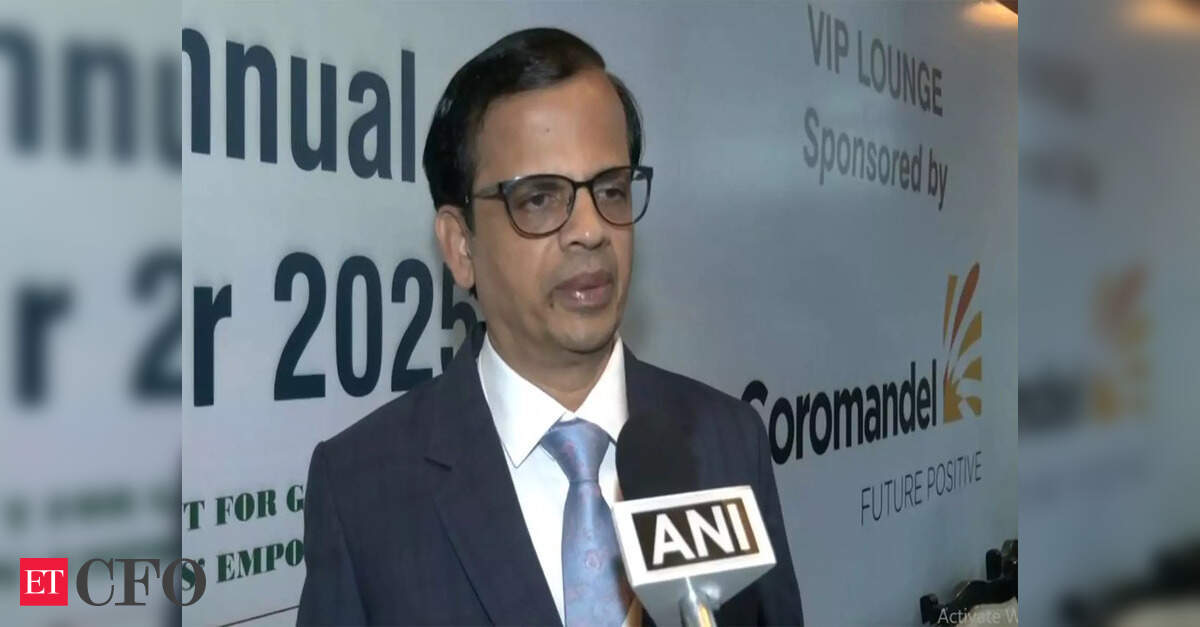Income of any university or other educational institution existing solely for educational purposes and not for purposes of profit, and which is wholly or substantially financed by the Government would be exempt under section 10(23C)(iiiab).
Section 10(23C)(iiiad)
Income of any university or other educational institution existing solely for educational purposes and not for purposes of profit would be exempt under section 10(23C)(iiiad) if the aggregate annual receipts of such university or educational institution do not exceed Rs. 5 Crores.
Note:
W.e.f. Assessment Year 2022-23, the Finance Act, 2021 has increased the limit of aggregate annual receipts from Rs. 1 crore to Rs. 5 crores.
Section 10(23C)(vi)
Income of any university or other educational institution existing solely for educational purposes and not for purposes of profit, other than those mentioned in sub-clause (iiiab) or sub-clause (iiiad) and which may be approved by the Principal Commissioner or Commissioner. An application in the prescribed form and manner has to be made to the Principal Commissioner or Commissioner, for grant of approval.
Income of Hospital [Section 10(23C)(iiiac)/(iiiae)/(via)]
Income arises to any hospital or other institution for the reception and treatment of persons suffering from illness or mental defectiveness or for the reception and treatment of persons during convalescence or of persons requiring medical attention or rehabilitation, existing solely for philanthropic purposes and not for purposes of profit, shall be exempt from tax under following situations:
1) If the hospital or other institution is wholly or substantially financed by the Government then exemption would be available under section 10(23C)(iiiac).
2) If the aggregate annual receipt of such hospital or institution do not exceed Rs. 5 Crores then exemption would be available under section 10(23C)(iiiae).
Note:
W.e.f. Assessment Year 2022-23, the Finance Act, 2021 has increased the limit of aggregate annual receipts from Rs. 1 crore to Rs. 5 crores
3) If the hospital is approved by the Principal Commissioner or Commissioner. An application in the prescribed form and manner has to be made to the Principal Commissioner or Commissioner, for grant of approval
Conditions for claiming exemption under section 10(23C)(iv)/(v)/(vi)/(via)
In order to claim exemption under section 10(23C)(iv)/(v)/(vi)/(via), the fund or trust or institution or any university or other educational institution or any hospital or other medical institution, as the case may be, had to comply with the following conditions:
1. An application in the prescribed form and manner has to be made to the Principal Commissioner or Commissioner, for grant of approval within the prescribed time limits. Timelines to make an application for approval has been summarised in the below table:
If entity is approved on or before 31-03- 2021 | On or before 25-11-2022 |
If entity is approved and the period of such approval is due to expire | At least 6 months prior to expiry of said approval |
Where such entity has been provisionally approved | At least 6 months prior to expiry of the period of the provisional approval; or within 6 months of the commencement of its activities. |
Any other case (applicable upto 30-09-2023) | At least 1 month prior to commencement of the previous year relevant to the assessment year from which said approval is sought |
Any other case (applicable from 01-10-2023) where activities of such entity have not commenced | At least 1 month prior to commencement of the previous year relevant to the assessment year from which said approval is sought |
Any other case (applicable from 01-10-2023) where activities of such entity have commenced and no income (or part) has been excluded on account of applicability of section 10(23C) or section 11 for any previous year ending on or before the date of such application | At any time after the commencement of activities |
2. On receipt of application for grant of approval, the Principal Commissioner or Commissioner is required to pass an order granting approval within the following period:
If entity is approved on or before 31-03- 2021 | Within 3 months from end of the month in which application is received |
If entity is approved and the period of such approval is due to expire | Within 6 months from the end of the month in which application is received |
Where such entity has been provisionally approved | Within 6 months from the end of the month in which application is received |
Any other case (applicable upto 30-09-2023) | Within 1 month from the end of the month in which application is received |
Any other case (applicable from 01-10-2023) where activities of such entity have not commenced | Within 1 month from the end of the month in which application is received |
Any other case (applicable from 01-10-2023) where activities of such entity have commenced and no income (or part) has been excluded on account of applicability of section 10(23C) or section 11 for any previous year ending on or before the date of such application | Within 6 months from the end of the month in which application is received |
Where application is made by an assessee (already approved for exemption) for renewal of approval or for conversion of provisional approval to regular approval or direct regular approval after commencement of activities, the Principal Commissioner or Commissioner may call for such documents or information or make such inquiries as he thinks necessary in order to satisfy himself about:
a) The genuineness of activities of assessee; and
b) The compliance of such requirements of any other law for the time being in force by it as are material for the purpose of achieving its objects.
If he is not satisfied about the genuineness of activities and compliance
required, he may pass an order rejecting the application and cancelling its approval. However, he is required to grant an opportunity of being heard to the assessee.
3. It should apply its income, or accumulates it for application, wholly and exclusively to the objects for which it is established and, in a case, where more than fifteen per cent of its income is accumulated on or after the 1st day of April, 2002, the period of the accumulation of the amount exceeding fifteen per cent of its income shall in no case exceed five year.
4. Funds should not be invested or deposited for any period during the previous year otherwise than in any one or more of the forms/modes specified in section 11(5). However, this condition is not applicable in respect of the following:-
(i) any assets which form part of the corpus of the fund, trust or institution or any university or other educational institution or any hospital or other medical institution as on the 1st day of June, 1973;
(ii) Equity shares of a public company, held by any university or other educational institution or any hospital or other medical institution where such equity shares form part of the corpus of any university or other educational institution or any hospital or other medical institution as on the 1st day of June, 1998
Read more articles on Exempt Incomes:
(iii) Debentures of a company acquired by the fund, trust or institution or any university or other educational institution or any hospital or other medical institution before the 1st day of March, 1983;
(iv) any accretion to the shares, forming part of the corpus of the fund mentioned in point no.
(i) and (ii), by way of bonus shares allotted to the fund, trust or institution or any university or other educational institution or any hospital or other medical institution; voluntary contributions received and maintained in the form of jewellery, furniture or any other article as the Board may, by notification in the Official Gazette, specify’s;
5. Any corpus donations received by such fund or institution or any university or other educational institution or any hospital or other medical institution, shall not be included in the income of such entities. Such voluntary contributions made with a specific direction that it shall form part of the corpus shall be invested or deposited in one or more of the forms or modes specified in Section 11(5) maintained specifically for such corpus.
6. The Finance Act 2022 inserted Explanation 1A and 1B to the third proviso to section 10(23C) with retrospective effect from the assessment year 2021-22. It provides that where the property held under a trust or institution includes any temple, mosque, gurdwara, church or other place notified under section 80G(2)(b), any sum received by such trust or institution as a voluntary contribution for renovation or repair of such temple, mosque, gurdwara, church or other place, may, at its option, be treated by such trust or institution as forming part of the corpus of the trust or the institution.
The following conditions are to be satisfied by such trust or institution:
Corpus to be applied only for the purpose for which the voluntary contribution was made;
Corpus shall not be applied for making a contribution or donation to any person;
Corpus to be maintained as separately identifiable;
Corpus to be invested in Section 11(5) modes.
If any trust or institution has treated any sum received by it as forming part of the corpus, and subsequently, any of the specified conditions is violated. In that case, such sum shall be deemed to be the income of such trust or institution of the previous year during which the violation takes place.
7. Application out of corpus shall not be considered as an application for charitable or religious purposes. However, when it is invested or deposited back, into one or more of the forms or modes specified in Section 11(5) maintained specifically for such corpus from the income of the previous year, such amount shall be allowed as an application in the previous year in which it is deposited back to the corpus to the extent of such deposit or investment. [first proviso to Explanation 2(i) to Section 10(23C)]
(a) Conditions to claim the application of income for the amount reinvested or redeposited in permissible mode [Second proviso to Explanation 2(i) to third proviso to Section 10(23C)]
The second proviso provides that the first proviso (i.e., application of income out of corpus donations reinvested or re-deposited to the permissible mode) shall apply if the following conditions are satisfied:
- Such application should not be in the form of a corpus donation to another trust [Twelfth proviso to Section 10(23C)];
- TDS, if applicable, should be deducted on such application [Thirteenth proviso to Section 10(23C)];
- Where payment or aggregate of payments made to a person in a day exceeds Rs 10,000 in other than specified modes (such as cash) is not allowed [Thirteenth proviso to Section 10(23C)];
- Carry forward and set off of excess application is not allowed [Explanation 2 to Section 10(23C)];
- Application is allowed in the year in which it is actually paid [Explanation 3 to Section 10(23C)];
- The application should not directly or indirectly benefit any person referred to in Section 13(1) and the income of the trust or institution should not enure any benefit to such person [Twenty-first proviso to Section 10(23C)]
(b) Limitation prescribed to reinvest or redeposit the corpus donation in permissible mode [Third proviso to Explanation 2(i) to the third proviso to Section 10(23C)]
The third proviso provides that the amount invested or deposited back shall not be treated as an application for charitable or religious purposes under the first proviso unless such investment or deposit is made within a period of 5 years from the end of the previous year in which such application was made from the corpus.
(c) No grandfathering is allowed for application made from the corpus in earlier years [Fourth proviso to Explanation 2(i) to third proviso to Section 10(23C)]
The fourth proviso provides that nothing contained in the first proviso shall apply where application from the corpus is made on or before 31-03-2021.
8. Application from loans and borrowings shall not be considered as an application for charitable or religious purposes. However, when loan or borrowing is repaid from the income of the previous year, such repayment shall be allowed as an application in the previous year in which it is repaid to the extent of such repayment. [first proviso to Explanation 2(ii) to the third proviso to Section 10(23C)]
(a) Conditions to claim the repayment of the loan as an application of income [Second proviso to Explanation 2(ii) to third proviso to Section 10(23C)]
The second proviso provides that the first proviso (i.e., repayment of the loan will be considered as an application of income) shall apply if the following conditions are satisfied:
- Such application should not be in the form of a corpus donation to another trust [Twelfth proviso to Section 10(23C)];
- TDS, if applicable, should be deducted on such application [Thirteenth proviso to Section 10(23C)];
- Where payment or aggregate of payments made to a person in a day exceeds Rs 10,000 in other than specified modes (such as cash) is not allowed [Thirteenth proviso to Section 10(23C)];
- Carry forward and set off of excess application is not allowed [Explanation 2 to Section 10(23C)];
- Application is allowed in the year in which it is actually paid [Explanation 3 to Section 10(23C)];
- The application should not directly or indirectly benefit any person referred to in Section 13(1) and the income of the trust or institution should not enure any benefit to such person [Twenty-first proviso to Section 10(23C)].
(b) Limitation prescribed to repay the loan or borrowings [Third proviso to Explanation 2(ii) to third proviso to Section 10(23C)]
The third proviso provides that the repayment of loan or borrowings shall not be treated as an application for charitable or religious purposes under the first proviso unless such repayment is made within a period of 5 years from the end of the previous year in which such application was made from the loan or borrowings.
(c) No grandfathering is allowed for the application made from the loans or borrowings in earlier years [Fourth proviso to Explanation 2(ii) to third proviso to Section 10(23C)]
The fourth proviso provides that nothing contained in the first proviso shall apply where application from the loan or borrowing is made on or before 31-03-2021.
9. The Finance Act 2023 inserted clause (iii) in Explanation 2 to the third proviso of Section 10(23C) with effect from 01-04-2024. It provides that any amount credited or paid out of the income [other than the corpus donation] of any trust or institution approved under Section 10(23C) to any other trust or institution approved under Section 10(23C) or registered under Section 12AB, as the case may be, shall be treated as application for charitable or religious purposes only to the extent of 85% of such amount credited or paid.
10. The income is not applied towards charitable purposes in the year of receipt and is proposed to be accumulated, such accumulation will be allowed only if the following conditions are complied with:
(a) The person furnishes a statement in form 10 stating the purpose/period for accumulation.
(b) The accumulated money shall be invested in permissible modes under section 11(5).
(c) The statement in Form 10 is furnished at least two months prior to the due date specified under Section 139(1) for furnishing the return of income for the previous year
11. In the following circumstances, the accumulated income shall be taxed in the hands of a fund or institution:
(a) Any accumulated income, if it is applied for purposes other than wholly and exclusively to the objects for which the fund or institution is established or ceases to be accumulated or set apart for application thereto shall be deemed to be the income of such person of the previous year in which it is so applied or ceases to be so accumulated or set apart.
(b) If it ceases to remain invested or deposited in any of the forms or modes specified in Section 11(5), it shall be deemed to be the income of such person of the previous year in which it ceases to remain so invested or deposited.
(c) If it is not utilized for the purpose for which it is so accumulated or set apart during the period, it shall be deemed to be the income of such person of the previous year being the last previous year of the period, for which the income is accumulated or set apart, but not utilized for the purpose for which it is so accumulated or set apart.
If it is credited or paid to any trust or institution registered under section 12AA or section 12AB or to any fund or institution or trust or any university or other educational institution or any hospital or other medical institution referred to in sub-clause (iv) or sub-clause (v) or sub-clause (vi) or sub-clause (via), it shall be deemed to be the income of such person of the previous year in which it is credited or paid to any fund or institution or trust or any university or other educational institution or any hospital or other medical institution.
12. The Finance Act 2022 inserted an Explanation 5 to the third proviso to section 10(23C) with effect from the assessment year 2023-24. It provides that where due to circumstances beyond the control of the person in receipt of the income, any income invested or deposited for a specified purpose cannot be applied for the purpose for which it was accumulated or set apart, the Assessing Officer may, on an application made to him in this behalf, allow such person to apply such income for such other purpose in India as is specified in the application by that person and as is in conformity with the objects for which the fund or institution or trust or any university or other educational institution or any hospital or other medical institution.
13. For claiming exemption under section 10(23C)(iv) and (v), the fund, trust or institution, as the case may be, should disinvest by March 30, 1993, all the investment made before April 1, 1989, otherwise than in any one or more of the forms or modes specified in section 11(5).
14. For claiming exemption under section 10(23C)(vi) and (via), the university or other educational institution or any hospital or other medical institution, as the case may be, should disinvest by March 30, 2001, all the investment made before June 1, 1998, otherwise than in any one or more of the forms or modes specified in section 11(5).
15. The exemption shall not apply in relation to any income of the fund or trust or institution or any university or other educational institution or any hospital or other medical institution, being profits and gains of business, unless the business is incidental to the attainment of its objectives and separate books of account are maintained by it in respect of such business.
16. If the total income of the fund or institution or trust or any university or other educational institution or any hospital or other medical institution referred to in Section 10(23C) (iv)/ (v)/ (vi)/ (via), without giving effect to the provisions of the said sub-clauses, exceeds the maximum amount which is not chargeable to tax in any previous year, such fund or institution or trust or any university or other educational institution or any hospital or other medical institution shall keep and maintain books of account and other documents in such form and manner and at such place, as prescribed in Rule 17AA.
17. If taxable income [before giving exemption under section 10(23C)] exceeds the exemption limit, the institution should get books of account audited in Form No. 10B or 10BB and audit report should be furnished one month prior to the due date for furnishing the return of income.
18. Any amount of donation received by the fund or institution in terms of clause (d) of section 80G(2) in respect of which accounts of income and expenditure have not been rendered to the authority prescribed under clause (v) of section 80G(5C), in the manner specified in that clause, or which has been utilised for purposes other than providing relief to the victims of earthquake in Gujarat or which remains unutilised in terms of section 80G(5C) and not transferred to the Prime Minister’s National Relief Fund on or before the 31st day of March, 2004 shall be deemed to be the income of the previous year and shall accordingly be charged to tax.
19. Any donation given by a trust/institution [registered under section 12AA/12AB or referred to in section 10(23C)(iv)/(v)/(vi)/(via)] to any other trust [which is registered under section 12AA or referred to in section 10(23C)(iv)/(v)/(vi)/(via)] as contribution with specific direction that they shall form part of the corpus of the recipient trust/institution, shall not be treated as an application of income.
20. If tax is deductible from any payment but it is not deducted and payment is made to a resident person, 30% of such payment will be disallowed. In other words, only 70% of an expense shall be deemed as application of income if tax is not deducted from such payment in accordance with Chapter XVII-B. The disallowance shall be made in accordance with Section 40(a)(ia).
21. The Finance Act, 2018 has extended the provisions of Section 40A(3) and 40A(3A) mutatis mutandis to the institutions approved under section 10(23C)(iv)/(v)/(vi)/(via)]. Consequently, if payment for an expense exceeding Rs. 10,000 is made in any mode other than account payee cheque, bank draft, net banking (i.e., payment in cash or bearer cheque) that payment or expense will not be considered while computing the application of income.
22. If the fund or trust or institution does not apply its income during the year of receipt and accumulates it, any payment or credit out of such accumulation to any trust or institution registered under section 12AA or section 12AB or to any fund or trust or institution approved under section 10(23C) shall not be treated as application of income to the objects for which such fund or trust or institution or university or educational institution or hospital or other medical institution, as the case may be, is established.
23. The normal or provisional approval can be cancelled by the Principal Commissioner (PCIT) or Commissioner (CIT). The approval can be cancelled under the following circumstances:
(a) The Principal Commissioner or Commissioner has noticed occurrence of one or more
‘Specified Violations’ during any previous year.
(b) The Principal Commissioner or Commissioner has received a reference from the Assessing Officer under the second proviso to Section 143(3) for any previous year.
(c) Such a case has been selected in accordance with the risk management strategy, formulated by the Board from time to time for any previous year
The following shall be considered as ‘Specified Violation’:
- If any income of the fund or institution or trust or any university or other educational institution or any hospital or other medical institution has been applied other than for the objects for which it is established
- If the fund or institution or trust or any university or other educational institution or any hospital or other medical institution has income from profits and gains of business, which is not incidental to the attainment of its objectives
- Separate books of account are not maintained by it in respect of the business which is incidental to the attainment of its objectives.
- Any activity being carried out by the trust or institution is not genuine or is not being carried out in accordance with the conditions subject to which it was registered.
- The trust or institution has not complied with the requirement of any other law for the time being in force as is material to achieve its objects, and the order, direction or decree, by whatever name
- called, holding that such non-compliance has occurred, has either not been disputed or has attained finality.
- If the application for approval/provisional approval/renewal of approval referred to in the first proviso is not complete, or it contains false or incorrect information
Procedure to be followed by PCIT/CIT
The PCIT or CIT shall call for such documents or information from the trust or institution or make such inquiry as he thinks necessary to satisfy himself about the occurrence or otherwise of any specified violation.
He shall pass an order in writing, cancelling the approval of such trust or institution after affording a reasonable opportunity of being heard, for such previous year and all subsequent previous years, if he is satisfied that one or more specified violations have taken place.
Suppose he is not satisfied about the occurrence of one or more specified violations. In that case, he shall pass an order in writing, refusing to cancel the approval of such trust or institution.
PCIT/CIT shall forward a copy of the cancellation order or order refusing to cancel the approval, as the case may be, to the Assessing Officer and such trust or institution
Time-limit to pass cancellation order
The cancellation order or order refusing to cancel the approval, as the case may be, shall be passed before the expiry of 6 months, calculated from the end of the quarter in which the first notice is issued by the PCIT or CIT, on or after the 01-04-2022, calling for any document or information, or for making any inquiry.
23. Any anonymous donation referred to in section 115BBC on which tax is payable in accordance with the provisions of the said section shall be included in the total income.
24. The provisions of section 2(15) shall apply and the organization should not engage in commercial activities
25. No exemption under section 10 other than agricultural income under section 10(1) shall operate to exclude any income received on behalf of such fund or trust or institution or university or other educational institution or hospital or other medical institution, as the case may be, from the total income of the person in receipt thereof for that previous year.
26. The Finance Act 2022 inserted an explanation to the nineteenth proviso to section 10(23C) with effect from 01-04-2022. It provides that if an institution approved under Section 10(23C) (iv)/(v)/(vi)/(via) is notified under Section 10(46)/(46A), the approval or provisional approval granted to such institution shall become inoperative from the date of notification of under Section 10(46)/(46A).
27. The Finance Act 2022 inserted the twentieth proviso to Section 10(23C) to provide that for the purpose of exemption under this clause, any trust or institution is required to furnish the return of income for the previous year in accordance with the provisions of section 139(4C) of the Act, within the time allowed under Section 139(1) or Section 139(4).
28. The Finance Act 2022 inserted the twenty-first proviso to Section 10(23C) of the Act to provide that where the income or part of income or property of any trust or institution has been applied directly or indirectly for the benefit of any person referred to in Section 13(3), such income or part of income or property shall be deemed to be the income of such person of the previous year in which it is so applied. The provisions of Section 13(2),(4) and (6) of the Act shall also apply to trust or institution referred to in Section 10(23C).
29. The Finance Act 2022 inserted Twenty-second proviso to section 10(23C) has been inserted to provide that where an Institution violates the following provisions, its income will be computed in a specified manner:
• Tenth proviso to section 10(23C) (Maintenance of books of account, etc. and audit of accounts)
• Twentieth proviso to section 10(23C) (Filing of return of income)
• Eighteenth proviso to section 10(23C) (Income in violation of proviso to section 2(15))
The income chargeable to tax shall be computed after allowing the deduction for the expenditure (other than capital expenditure) incurred in India for the objects of the trust or institution, subject to fulfilment of the following conditions, namely:
(a) Such expenditure is not from the corpus standing to the credit of such trust or institution as on the last day of the financial year immediately preceding the previous year relevant to the assessment year for which the income is being computed;
(b) Such expenditure is not from any loan or borrowing;
(c) Claim of depreciation is not in respect of an asset, acquisition of which has been claimed as an application of income in the same or any other previous year; and
(d) Such expenditure is not in the form of any contribution or donation to any person.
The provisions of Section 40(a)(ia), Section 40A(3) and Section (3A) shall, mutatis mutandis, apply as they apply in computing the income chargeable under the head “Profits and gains of business or profession”.
30. For the purpose of claiming exemption under section 10(23C), where any income is required to be applied or accumulated, then, for such purpose the income shall be determined without any deduction or allowance by way of depreciation or otherwise in respect of any asset, acquisition of which has been claimed as an application of income under this clause in the same or any other previous year.
31. No set-off or deduction or allowance of any excess application, of any of the year preceding the previous year shall be allowed during the previous year. Therefore, the charitable trusts shall not be permitted to carry forward the losses or excess application of earlier years.
32. The Finance Act 2022 inserted an Explanation 3 to section 10(23C) with effect from the assessment year 2022-23 to provide that any sum payable by an institution shall be considered as an application of income in the previous year in which such sum is actually paid by it (irrespective of the previous year in which the liability to pay such sum is incurred by the institution according to the method of accounting regularly employed by it).
However, where during any previous year any sum has been claimed to have been applied by the fund or institution or trust or any university or other educational institution or any hospital or other medical institution, such sum shall not be allowed as an application in any subsequent previous year.
Join our Practical GST Course:
with lifetime validity: https://cagurujiclasses.com/courses/gst-course-2022/
With limited validity: https://studywudy.com/courses/gst/
Join our Practical Income Tax, ITR & TDS Course:
with lifetime validity: https://cagurujiclasses.com/courses/practical-course-income-tax-itr-tds/
With limited validity: https://studywudy.com/courses/incometax/
![Exempt Income of Educational Institutions [Section 10(23C)(iiiab)/(iiiad)/(vi)] Section 10(23C)(iiiab) Exempt Income of Educational Institutions [Section 10(23C)(iiiab)/(iiiad)/(vi)] Section 10(23C)(iiiab)](https://taxupdates.cagurujiclasses.com/wp-content/uploads/2023/07/blog-13.jpg)

